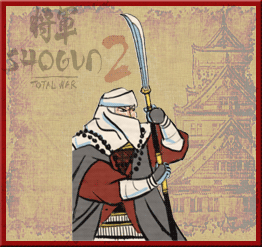Difference between revisions of "Naginata Warrior Monks (TWS2 Unit)"
m |
Tango12345 (talk | contribs) m (Quick-adding category "TWS2 Units" (using HotCat)) |
||
| (One intermediate revision by the same user not shown) | |||
| Line 24: | Line 24: | ||
*Not as good in melee as sword infantry, and not as good against cavalry as spear infantry. | *Not as good in melee as sword infantry, and not as good against cavalry as spear infantry. | ||
| − | [[Category:TWS2 Infantry Units]] | + | |
| + | [[Category:TWS2 Infantry]] | ||
| + | [[Category:TWS2 Units]] | ||
Latest revision as of 10:50, 30 May 2017
Description
These warrior monks wield fearsome naginata: long polearms effective against cavalry and infantry alike.
A warrior with an unshakable faith can be very dangerous, for the truly devout have little to fear from death. For these monks, faith is not just a matter of conscience, but another weapon and one that gives them very good morale in battle. The weapon they carry is a naginata, a long staff with a blade fixed to the end. The polearm’s long reach makes it effective against cavalry and infantry, but this versatility is no protection against specialist troops.
A naginata was, and still is, a polearm weapon similar to the medieval European glaive: a long, wooden shaft with a curved killing blade. The blade varied in length and was made to the same quality standard as a sword blade. These distinctive looking weapons were closely associated with warrior monks, and most famously used by Gochin no Tajima (Tajima the “arrow cutter”) at the battle of Uji in 1180. Gochin was part of a group of samurai and warrior monks pursued by the Taira clan. He made a defensive stand at a bridge, whirling his naginata with such expertise that the enemy’s arrows harmlessly bounced away.
Strengths & Weaknesses
- Versatile infantry that are good in melee and against cavalry.
- Not as good in melee as sword infantry, and not as good against cavalry as spear infantry.

